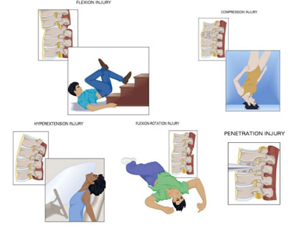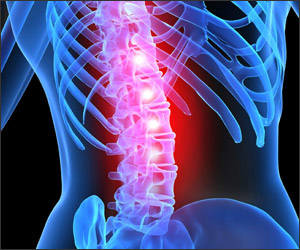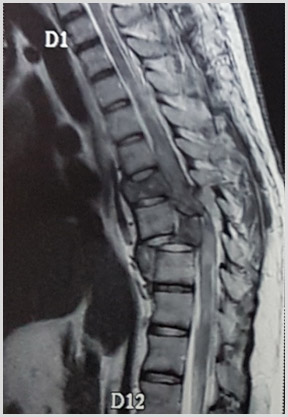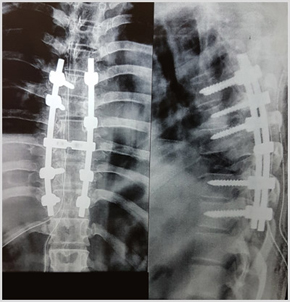
Dr. Amitabha Das
MBBS (Hons), MS (General Surgery, Gold medalist), MCh (Neurosurgery, AIIMS

MBBS (Hons), MS (General Surgery, Gold medalist), MCh (Neurosurgery, AIIMS
SPINAL TRAUMA
What’s a spinal cord injury?
A spinal cord injury is damage to the spinal cord. It’s an extremely serious type of physical trauma that’s likely to have a lasting and significant impact on most aspects of daily life.
The spinal cord is a bundle of nerves and other tissue that the vertebrae of the spine contains and protects. The vertebrae are the bones stacked on top of each other that make up the spine. The spine contains many nerves, and extends from the brain’s base down the back, ending close to the buttocks.
The spinal cord is responsible for sending messages from the brain to all parts of the body. It also sends messages from the body to the brain. We’re able to perceive pain and move our limbs because of messages sent through the spinal cord.
If the spinal cord sustains an injury, some or all of these impulses may not be able to “get through.” The result is a complete or total loss of sensation and mobility below the injury. A spinal cord injury closer to the neck will typically cause paralysis throughout a larger part of the body than one in the lower back area.
 2
2
How do spinal cord injuries usually occur?
A spinal cord injury is often the result of an unpredictable accident or violent event. The following can all result in damage to the spinal cord:
• a violent attack such as a stabbing or a gunshot
• diving into water that’s too shallow and hitting the bottom
• trauma during a car accident, specifically trauma to the face, head, and neck region, back, or chest area
• falling from a significant height
• head or spinal injuries during sporting events
• electrical accidents
• severe twisting of the middle portion of the torso
 3
3
What are the symptoms of a spinal cord injury?
Some symptoms of a spinal cord injury include:
• problems walking
• loss of control of the bladder or bowels
• inability to move the arms or legs
• feelings of spreading numbness or tingling in the extremities
• unconsciousness
• headache
• pain, pressure, and stiffness in the back or neck area
• signs of shock
• unnatural positioning of the head

Spinal Trauma Pre Ooperation

Spinal Trauma Post Ooperation